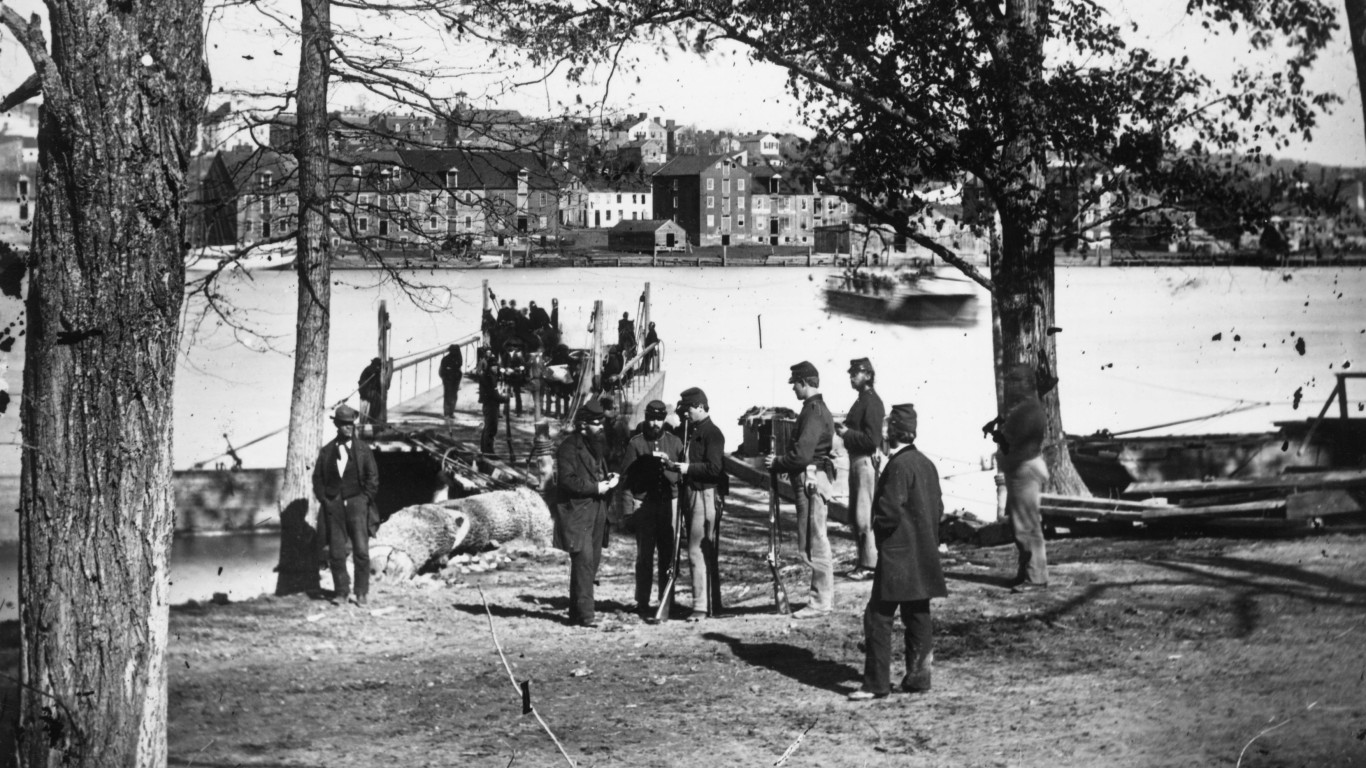

This article was written with the assistance of A.I. technology, and has been edited and fact-checked by Melly Alazraki.
The Civil-War was the deadliest conflict in American history, and of the regiments assembled to preserve the Union, none suffered more losses in battle than the 1st Maine Heavy Artillery Regiment.
The regiment, which was organized in Bangor, Maine, in August 1862, saw action in some of the most devastating battles in the war, including the Battle of Cold Harbor and the Siege of Petersburg. In total, the Regiment lost 400 enlisted soldiers and 23 officers in battle, and 260 troops to disease, according to data from A Compendium of the War of the Rebellion by Civil War statistician Frederick H. Dyer, first published in 1908.
Though the Union ultimately prevailed with Gen. Lee’s 1865 surrender at Appomattox, Union forces also suffered more casualties than the Confederacy, with 642,427 casualties, compared to 483,026 Confederates killed, wounded, or taken prisoner.
In total, Maine sent an estimated 70,000 troops to fight in the Civil War, far fewer than more populous states like New York, Pennsylvania, and Ohio. Other Union regiments that suffered high battle casualties include the 8th New York Heavy Artillery and the 5th New Hampshire Volunteer Infantry Regiment. Both of these regiments engaged in many of the same battles as the 1st Maine Heavy Artillery Regiment
Click here to see the Union Army regiments that suffered the most losses in the Civil War.
Sponsored: Find a Qualified Financial Advisor
Finding a qualified financial advisor doesn’t have to be hard. SmartAsset’s free tool matches you with up to 3 fiduciary financial advisors in your area in 5 minutes. Each advisor has been vetted by SmartAsset and is held to a fiduciary standard to act in your best interests. If you’re ready to be matched with local advisors that can help you achieve your financial goals, get started now.
Thank you for reading! Have some feedback for us?
Contact the 24/7 Wall St. editorial team.



